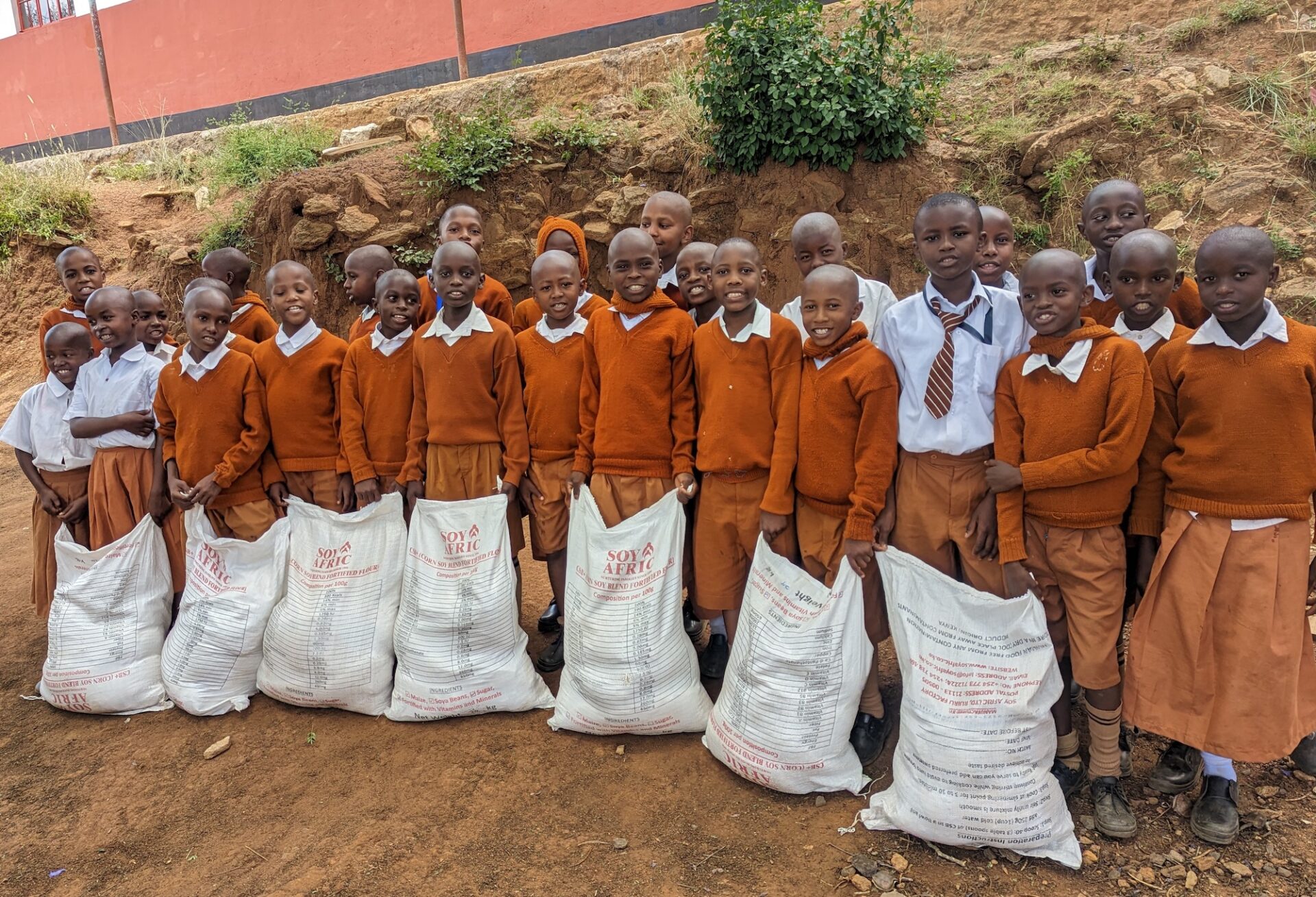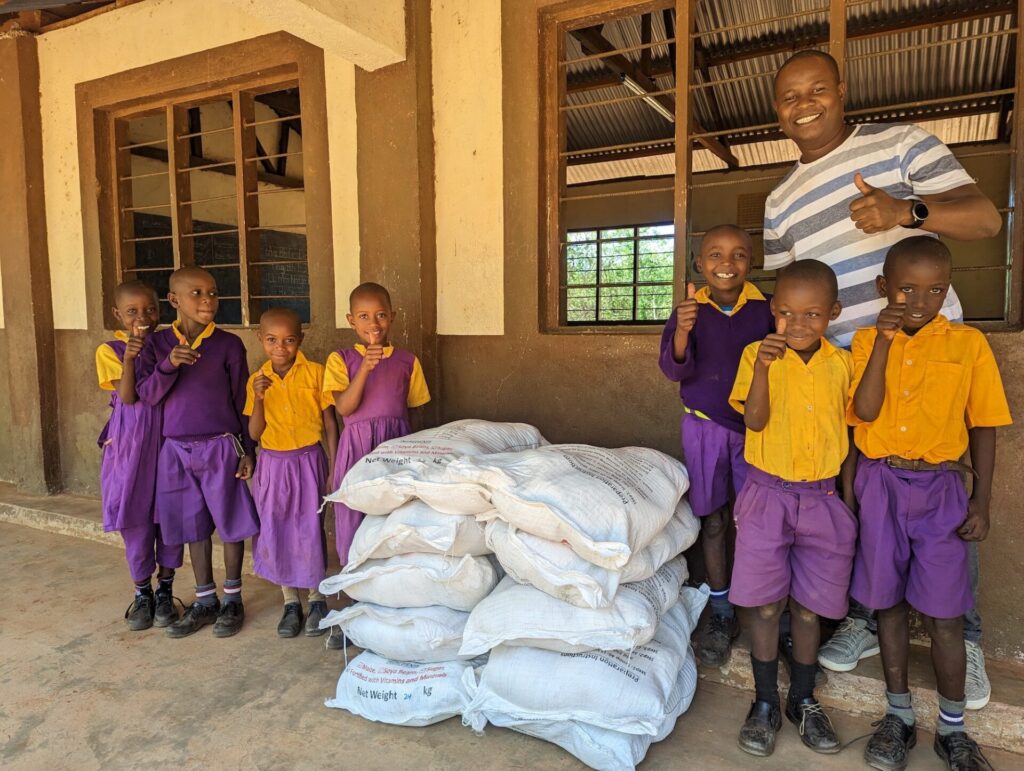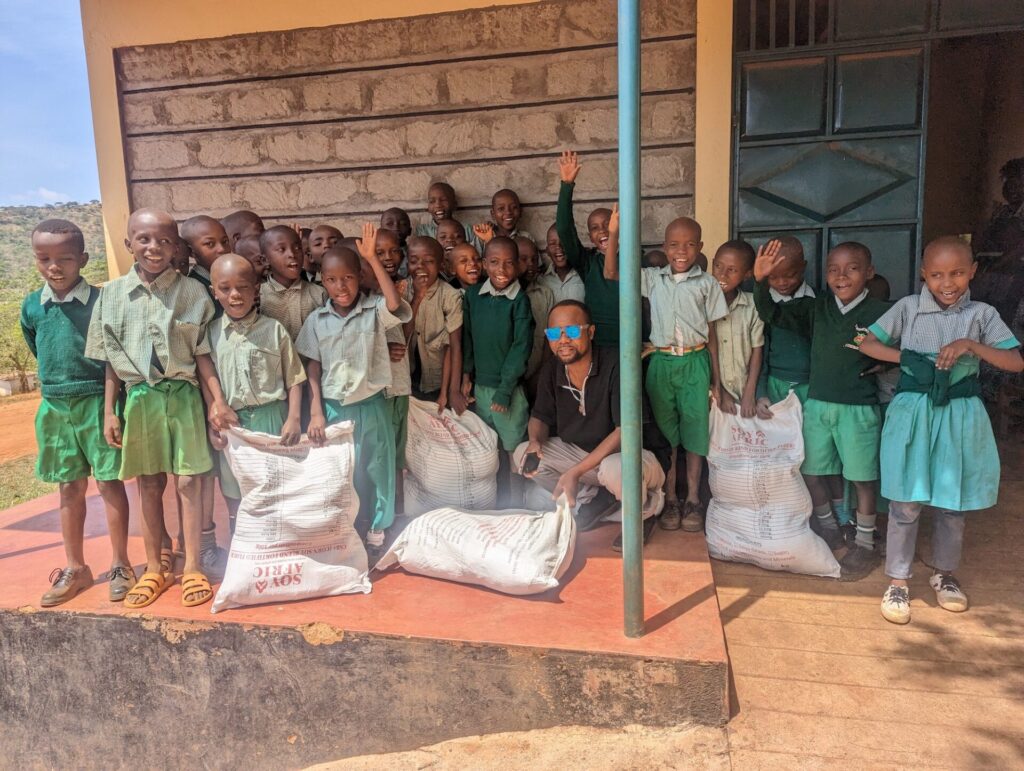Communities are building resilience to the far-reaching impacts of drought by embracing conservation agriculture and other strategies aimed at strengthening food security.


The drought and severe climatic conditions in Kenya have adversely affected subsistence farmers, and the Kasigau Corridor REDD+ project area is not an exception. “Times are very different from the way we were growing up because of climate change. Farmers can no longer predict when it’s going to rain or not and the land continues to be arid,” says George Thumbi, Wildlife Works’’ Agribusiness and Agroforestry Manager.
This impact is not only felt by farmers, but also by students in the project area as they are forced to miss school because of the lack of food brought about by the ongoing drought. Timothy Nthumbi, a Headteacher at Kale Primary School in the Kasigau region in Kenya, says his school has been negatively affected during this drought period, as most of the community members living in the area are subsistence farmers. “It was very bad before we had Wildlife Works’ intervention in the school feeding program,” he says. “Most of the students come from an economically deprived background, so they would report to school on an empty stomach. In such a situation, the teachers would identify the hungriest of the students and buy food from their own pocket to sustain them through the day. Also, during lunch hours, we would prevent some students from going home because we were sure they wouldn’t come back. Their parents are subsistence farmers who have been depending on agriculture and livestock farming for survival,” he adds.
School absenteeism was also rife and the academic performance was below average in most schools in the project area. “When students attend school on an empty stomach, some end up sleeping during examination or class time. It was common to find 10 students missing in a class of 50,” he recalls.
“The community-led committees decided to do something about the situation,” says Joseph Mwakima, a Community Relations Officer at Wildlife Works. A partnership with the Local Carbon Committees, ranches and conservancies within the carbon project, and Elephant Cooperation saw 65 schools in Taita Taveta being recipients of a school feeding program. The program, which kicked off in November 2022, targeted schools in areas affected by the prolonged drought crisis.

Each of the nearly 23,000 students receiving food will get enough to sustain them in their school-going days throughout the drought period. The schools are based in the project area regions of Marungu, Sagala, Mwatate, MacKinnon and Mwachabo. The food is a porridge mixture combined with all essential nutrients to ensure a balanced diet.
“For a lot of students, what they get here is their only meal,” says Mr. Timothy.
The program will continue during the school-going days until food security improves, as Wildlife Works continues to partner with other organizations to invest in this worthy cause.

The impact of drought on the community has been far-reaching, but it is encouraging to see communities building resilience by embracing conservation agriculture and other strategies aimed at strengthening food security. Our appreciation goes to our community-led committees and partners who are making this program possible through forest protection.
